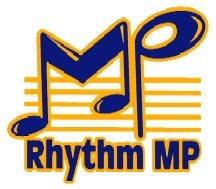As a teacher and composer of educational music I am all too aware of the need to introduce different styles of music as part of my piano teaching strategy. Students are influenced by many different forms of music making and should be given the opportunity to play music they like. In my experience this is one of the key ways to develop a motivated and enthusiastic student. But inspiring your students at any level requires you to develop a wide range of skills. These are the main ones I work on:
- An enthusiasm for the instrument
- The ability to encourage and motivate
- The imagination to suggest alternative approaches when things are not going quite to plan
- An awareness of outside pressures affecting the student’s progress: exams, sport, etc.
- The ability to build a sound and communicative working relationship with your student
- An endless supply of patience
- A good sense of humour!
I find that an understanding and rewarding approach with an individual student helps us to build two-way respect for each other. I also always try to present my own unique style of teaching and am willing to respond differently to different students.
Through developing skills such as these we find we are entering into the situation where we are also learning. It can be a great shock to the system to discover how difficult it is to acquire a new skill - something worth remembering as we introduce new ideas to our students!
Motivation to Practice
Usually, a bright student who has decided that the piano is the instrument for them will possess a ready-made desire to develop his/her skills and be willing to practise. However, if the choice of instrument and/or the learning of it has been a parental decision, the student may need more motivation from you. Remember that students always work best when there is a goal in sight. Attending appropriate concerts or other live music events and/or taking part in performances or competitions all help a student’s desire to achieve and, in turn, will help stimulate practice.
Grade Examinations
There is little doubt that grade examinations can form a very solid part of a teaching course. They offer a powerful source of motivation and provide a ready-made challenge. Passing exams is part of our culture and most students will respond well.
It is also important, however, to consider the disadvantages. Entering a student whose musical ability is not quite up to it may produce all types of problems. Failure, for whatever reason, is disheartening and demoralizing and a decision as to whether or not to enter a student, and the timing of such a step, must be considered carefully. Never enter a student simply to make them work.
Exams are a test of all-round musicianship, but can limit the student’s musical experience. Teachers who simply take their students from one exam to the next are not allowing them to become familiar with other musical styles. In turn this can lead to the student becoming demotivated and bored. If a student just wants to play pieces - then let them!
About ‘Up-Grade!’
The idea for ‘Up-Grade!’ came to me when I overheard a teacher in a music store asking for pieces between the grades! This led me to the realisation that there was a real lack of enjoyable repertoire for the gap between the grades and so I wrote a series of books for piano and other instruments entitled ‘Up-Grade!’. In the series I have tried to write music in many different styles from pop to classical without making the music too demanding technically. The idea is to provide pieces which are quick to learn, at exactly the right technical level and, in turn, which broaden the musical experience of a student otherwise focussed exclusively on grade examinations.
Since their release, I have received many encouraging letters from every part of the world:
“My students have really enjoyed playing ‘Up-Grade’ and have started to do lots of practice!”
“You have put new life into my piano teaching, thank you”
“Can we please have some more ‘Up-Grade’? My students have worked through the lot!”
I have really enjoyed writing the ‘Up-Grade!’ series and I hope it will be a useful addition to your teaching programme. I would also value any comments you may wish to make on the series - I am always writing new material and, as with my teaching methods, I am constantly developing new ideas!
♫♫♫♫♫♫♫♫♫♫♫♫♫♫♫♫♫♫♫♫♫♫♫♫♫♫♫♫♫♫♫♫♫♫♫♫♫♫♫♫♫
This article "Motivating Your Piano Students" was published in the October 2001 No.36 issue of "Rhythms" a music bulletin.




.jpg)